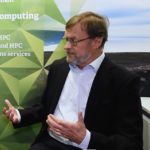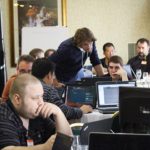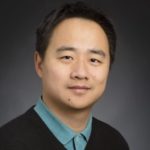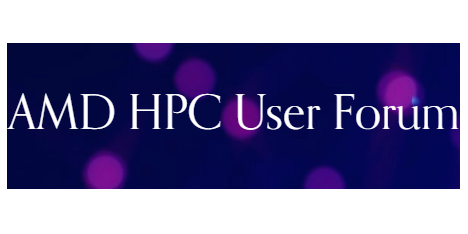“The tremendous progress that we’re making toward the achievement of exascale systems, both here in the United States and in the European Union and Asia, will be undermined unless we can create a shared distributed computing platform to manage the logistics of massive, multistage data workflows with their sources at the network edge. Backhauling these rivers of data to the supercomputing center or the commercial cloud will not be a viable option for many, if not most applications.”
Archives for 2017
Video: Inside the Award-Winning Stanford Living Heart Project
In this video, Staffan Hansson from AdvaniaDC chats with Wolfgang Gentzsch from The UberCloud about the award-winning Stanford Living Heart Project, how the partnership was so successful, and his thoughts on HPC in the cloud and what it means for the future of research. “The Stanford LHP project is simulating cardiac arrhythmia, which can be an undesirable and potentially lethal side effect of drugs.”
Announcing a Series of Worldwide GPU Hackathons in 2018
ORNL is hosting a series of GPU Hackathons in 2018. The first event will take place March 5-9 at TU Dresden in Germany. “The goal of each Hackathon is for current or prospective user groups of large hybrid CPU-GPU systems to send teams of at least 3 developers along with either (1) a (potentially) scalable application that could benefit from GPU accelerators, or (2) an application running on accelerators that need optimization. There will be intensive mentoring during this 5-day hands-on workshop, with the goal that the teams leave with applications running on GPUs, or at least with a clear roadmap of how to get there. Our mentors come from national laboratories, universities, and vendors, and besides having extensive experience in programming GPUs, many of them develop the GPU-capable compilers and help define standards such as OpenACC and OpenMP.”
Advanced Protein Prediction Using Deep Learning on Blue Waters Supercomputer
Researchers at NCSA used the Blue Waters Supercomputer and Deep Learning to achieve a breakthrough in protein structure predictions. As published in the Cell Systems journal, the research was conducted by Jian Peng, NCSA Faculty Fellow and Assistant Professor in the Department of Computer Science at Illinois and Yang Liu, a graduate student in the Department of Electrical and Computer Engineering. “Peng’s research proposes to largely explore a more accurate function for evaluating predicted protein structures through his development of the deep learning tool, DeepContact. DeepContact automatically leverages local information and multiple features to discover patterns in contact map space and embeds this knowledge within the neural network. Furthermore, in subsequent prediction of new proteins, DeepContact uses what it has learned about structure and contact map space to impute missing contacts and remove spurious predictions, leading to significantly more accurate inference of residue-residue contacts.”
Intel Parallel Studio 2018: Modernize Your Code
“Intel Parallel Studio 2018 has been designed to recognize the latest CPU architectures including the Intel Xeon Scalable processor family and the Intel Xeon Phi processors in order to get maximum performance from their differing architectures, yet remain binary compatible. With the recent introduction of the Intel AVX-512 vectorization instructions, application developers can more easily take advantage of these new instructions when developing and compiling with the Intel Parallel Studio 2018.”
Swiss HPC Conference Returns to Lugano in April with Winter HPCXXL User Group
Today the HPC Advisory Council announced that registration is now open for the Swiss HPC Conference. The event takes place April 9-12 in Lugano, Switzerland. For the first time, the conference will be held in concert with the Winter HPCXXL User Group meeting. “We are very excited to organize a joint conference here in Lugano, bringing together the communities of HPCAC and HPCXXL,” said Hussein Harake, HPC system manager, CSCS. “We believe that such a collaboration will offer a unique opportunity for HPC professionals to discuss and share their knowledge and experiences.”
Video: Deep Learning for the Enterprise with POWER9
Sumit Gupta from IBM gave this talk at H2O World. “From chat bots, to recommendation engines, to Google Voice and Apple Siri, AI has begun to permeate our lives. We will demystify what AI is, present the difference between machine learning and deep learning, why the huge interest now, show some fun use cases and demos, and then discuss use cases of how deep learning based AI methods can be used to garner insights from data for enterprises. We will also talk about what IBM is doing to make deep learning and machine learning more accessible and useful to a broader set of data scientists, and how to build out the right hardware infrastructure.”
Stanford HPC Conference Returns to Palo Alto in February
Today HPC Advisory Council announced its 2018 Stanford HPC Conference will take place February 20-21, 2018 at Stanford University. The annual California-based conference draws world-class experts from all over the world for two days of thought leadership talks and immersive tutorials focusing on emerging trends with extensive coverage of AI, Data Sciences, HPC, Machine Learning and more. “The Stanford Conference is an intimate gathering of the global HPC community who come together to collaborate and innovate the way to the future,” said Steve Jones, Director of Stanford’s High Performance Computing Center. “SMEs, mentors, students, peers and professionals, representing a diverse range of disciplines, interests and industry, are drawn to the conference to learn from each other and leave collectively inspired to contribute to making the world a better place.”
Call for Papers: HiPINEB 2018 in Vienna
The IEEE International Workshop on High-Performance Interconnection Networks in the Exascale and Big-Data Era (HiPINEB) has issued its Call for Papers. The event takes place February 25, 2018 in Vienna, Austria in conjunction with HPCA 2018 Conference. “The main goal of the fourth edition of HiPINEB is to gather and discuss in a full-day event the latest and most prominent efforts and advances, from both industry and academia, in the design and development of scalable high-performance interconnection networks, especially those oriented to meet the Exascale challenge and Big-data demands.”
First Global Survey of Energy and Power Aware Job Scheduling and Resource Management
In this special guest feature, Siddhartha Jana summarizes the key findings of the first-of-its-kind survey on Energy and Power Aware Job Scheduling and Resource Management. “The goal of this year-long survey was to investigate the active investments by HPC centers in enabling energy and power management within their software stack, especially the job schedulers and resource managers.”












